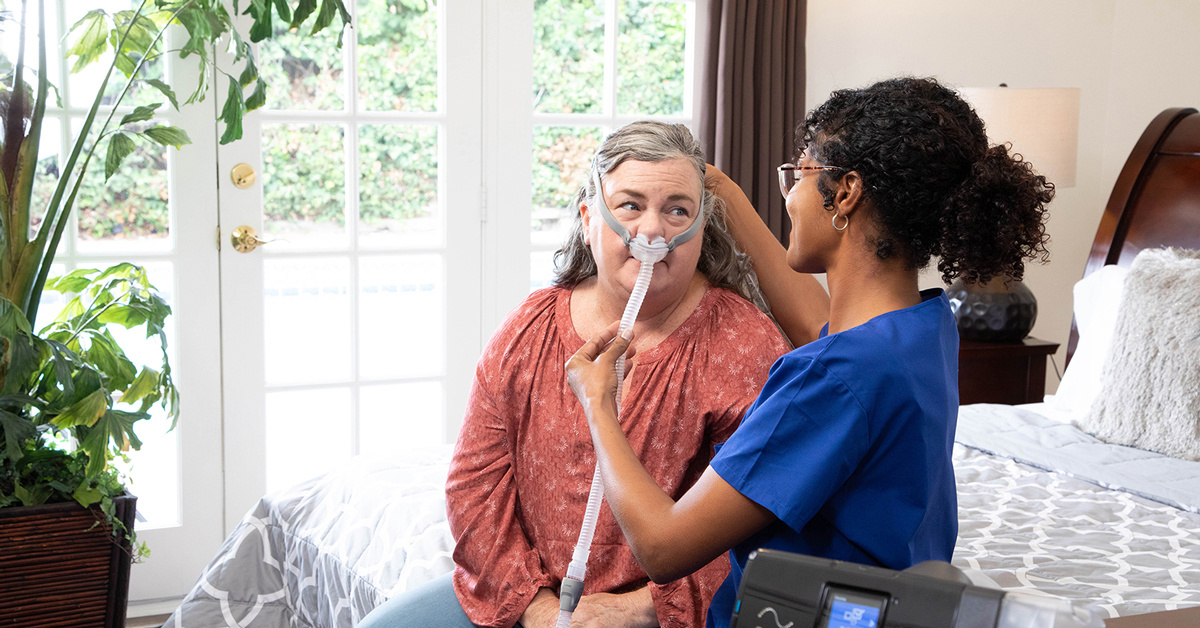Chronic Obstructive Pulmonary Disease (COPD) is a progressive lung disease that significantly impacts patients’ quality of life. Effective management of COPD goes beyond medical treatment; it requires comprehensive patient education. Educating patients about their condition can transform their treatment outcomes, improve adherence to treatment, and increase overall well-being.
KEY STAKEHOLDERS IN COPD ADHERENCE
 The Patient
The Patient
Patients play a central role in managing their COPD. Their willingness to follow treatment plans, attend appointments, and make lifestyle changes is essential. Without buy-in from the patient, their condition will worsen and eventually lead to hospitalization. Education and empowerment are key to helping patients understand the importance of adherence.
 The Pulmonologist
The Pulmonologist
Pulmonologists are responsible for diagnosing COPD, prescribing treatments, and monitoring patient progress. They provide the medical expertise and guidance needed to manage the disease effectively. Building a strong patient-provider relationship is crucial for encouraging adherence.2
 The DME Provider
The DME Provider
DME providers, like Apria Healthcare, supply the necessary equipment and support services for COPD management to both patients and pulmonologists. They ensure patients have access to oxygen therapy, nebulizers, and other essential devices. DME providers also offer education and support to help patients use their equipment correctly. Additionally, depending on the equipment provided, Apria provides comprehensive clinical follow-up programs to ensure the physician receives clinical reports on their patient’s care and condition, where applicable. Apria’s clinical reports are tools designed to improve communication and provide updated reports about patient care to physicians, assisting in the collaboration and partnership of the patient’s overall care continuum.
CHALLENGES TO ADHERENCE
Patients with COPD face numerous challenges that can hinder adherence to treatment regimens. These include:
Complexity of Treatment Regimens
COPD treatment plans can be complex, involving multiple medications, inhalers, oxygen therapy, and other respiratory therapy devices necessary to support a patient’s ventilation. Patients may struggle to manage these regimens, leading to non-adherence. In fact, a study reported that patients with COPD were prescribed an average of 6.3 medications. These complex dosing regimens lead to non-adherence.1
Side Effects
COPD medications can have side effects that discourage patients from following their treatment plans. Addressing these concerns through patient education and support is essential. Providing information on how to manage common side effects and when to seek medical help can also improve adherence.5
Psychological Factors
Depression, anxiety, and cognitive impairment are common in COPD patients. Providing mental health support and addressing these issues is crucial to keeping patients engaged and invested in their treatment. Integrating mental health services into COPD care can help patients manage these conditions and improve adherence. Support groups and counseling can also provide patients with the emotional support they need to adhere to their treatment plans.
Lack of Education
Patients who do not fully understand their condition or the importance of their treatment plan are less likely to follow their prescribed therapy regimen. Comprehensive patient education is vital for improving adherence.2
Geographic Barriers
Living in rural areas can create significant challenges for COPD patients. Limited access to healthcare facilities and long travel distances can make it difficult for patients to attend appointments and receive necessary care. Telehealth services can bridge this gap by providing remote consultations and follow-up care. DME providers can also offer home delivery of equipment and virtual support to ensure patients receive the care they need without having to travel.
Physical Limitations
COPD patients may have physical limitations that make it difficult to attend appointments or visit DME provider locations. Mobility issues, severe breathlessness, and other symptoms can hinder their ability to seek in-person care. Home visits by healthcare professionals and DME providers can address this barrier by bringing care directly to the patient’s home. Additionally, telehealth services can provide a convenient and accessible way for patients to receive support and follow-up care.
Financial Burden
The cost of medications and various treatments can be prohibitive, making it difficult for many patients to adhere to their prescribed regimens. This financial strain often leads to compromised health outcomes as patients may skip doses or forgo treatments altogether.4
STRATEGIES TO IMPROVE ADHERENCE
Improving adherence requires a collaborative approach involving patients, healthcare providers, and DME suppliers. Key strategies include:
Simplifying Treatment Plans
Simplifying treatment regimens by reducing the number of medications or using combination inhalers can make adherence easier for patients. Additionally, integrating technology, such as digital medication reminders or apps, can help patients stay on track with their treatment plans.3
Through Apria Pharmacy Network, we make it easy for patients to manage their prescribed medications:
- Delivery right to your patients door, saving you trips to the pharmacy.
- There is never a charge for our reliable ground home delivery service.
- Never run out of medication with our refill tracking system.
- We make refill courtesy calls to ensure your patients are always well supplied.
Patient Education
Educating patients about COPD, their treatment plans, and the importance of adherence is crucial. This can be done through one-on-one sessions, educational materials, and support groups. Additionally, both age and COPD duration affect cognitive decline which can lead to memory problems, both of which are associated with non-adherence.1
Apria has an assortment of patient education resources available on our website to ensure patients have the information they need for effective self-management of COPD. Find the resources here:
Regular Follow-Ups
Regular follow-up appointments with pulmonologists and DME providers help monitor patient progress, address concerns, and reinforce the importance of adherence. For example, it has been showed that adherence to medication has been reported to increase if the prescribing physician is a specialist compared with a general practitioner.1 Ensuring continuity of care, explanation of the rationale behind treatments, written instructions and follow-up supervision have all been shown to improve patient adherence.1
Support Systems
Establishing support systems, including family involvement and peer support groups, can provide patients with the encouragement and assistance they need to adhere to their treatment plans.
THE ROLE OF PATIENT EDUCATION
Patient education is a cornerstone of adherence improvement. Effective education involves:



THE ROLE OF APRIA HEALTHCARE

Equipment Provision
Supplying oxygen therapy, nebulizers, and other essential devices.
 Patient Education
Patient Education
Offering educational resources and training to help patients understand and use their equipment correctly.
 Ongoing Support
Ongoing Support
Providing continuous support through follow-up calls, home visits, and telehealth services to address patient concerns and reinforce adherence.
 Connected Care
Connected Care
Utilizing technology, Apria provides connected care solutions that enable continuous monitoring and timely interventions.
 Multidisciplinary Team
Multidisciplinary Team
Apria’s team includes respiratory therapists, nurses, and other healthcare professionals who collaborate to provide holistic care.
CONCLUSION
Improving patient adherence in COPD management is a collaborative effort involving patients, pulmonologists, and DME providers. By addressing the challenges to adherence and implementing effective strategies, we can enhance patient outcomes and quality of life. Apria Healthcare is committed to supporting these efforts through comprehensive services and patient-centered care.
Sources
1. Jang, J. G., Kim, J. S., Chung, J. H., Shin, K.-C., Ahn, J. H., Lee, M. S., Bang, S. H., Park, D. Y., Nam, M. J., Jin, H. J., & Lee, K. H. (2019). Comprehensive Effects of Organized Education for Patients with Chronic Obstructive Pulmonary Disease. International Journal of Chronic Obstructive Pulmonary Disease, Volume 14, 2603–2609. https://doi.org/10.2147/copd.s221673
2. Lindh, A., Giezeman, M., Theander, K., Zakrisson, A.-B., Westerdahl, E., & Stridsman, C. (2024). Factors Associated with Patient Education in Patients with Chronic Obstructive Pulmonary Disease (COPD) – A Primary Health Care Register-Based Study. International Journal of Chronic Obstructive Pulmonary Disease/International Journal of COPD, 19, 1069–1077. https://doi.org/10.2147/copd.s455080
3. Centers for Disease Control and Prevention. (n.d.). COPD and Vaccines: What You Should Know. https://www.nhlbi.nih.gov/sites/default/files/publications/COPD%20and%20Vaccines%20What%20You%20Should%20Know_508c_1.pdf
4. Willard, K. (2023, March 3). Improved COPD education for better patient outcomes. COPD Foundation. https://www.copdfoundation.org/Praxis/Community/Blog/Article/674/Improved-COPD-education-for-better-patient-outcomes.aspx
5. King Han, M. (2024, June). UpToDate. www.uptodate.com. https://www.uptodate.com/contents/chronic-obstructive-pulmonary-disease-copd-treatments-beyond-the-basics
6. Scichilone, N., Whittamore, A., White, C. M., Nudo, E., Savella, M., & Lombardini, M. (2023). The patient journey in Chronic Obstructive Pulmonary Disease (COPD): a human factors qualitative international study to understand the needs of people living with COPD. BMC Pulmonary Medicine, 23(1). https://doi.org/10.1186/s12890-023-02796-8
7. Jarab, A., Alefishat, E., Mukattash, T., Alzoubi, K., & Pinto, S. (2018). Patients’ perspective of the impact of COPD on quality of life: a focus group study for patients with COPD. International Journal of Clinical Pharmacy, 40(3), 573–579. https://doi.org/10.1007/s11096-018-0614-z





.png)



